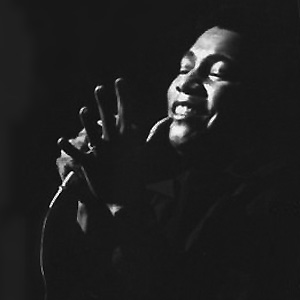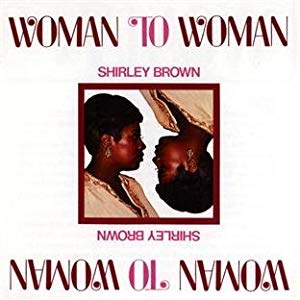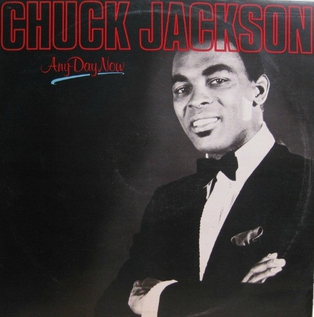Related Research Articles

Sam & Dave were an American soul and R&B duo who performed together from 1961 until 1981. The tenor (higher) voice was Sam Moore and the baritone/tenor (lower) voice was Dave Prater (1937–1988).

Johnnie Harrison Taylor was an American recording artist and songwriter who performed a wide variety of genres, from blues, rhythm and blues, soul, and gospel to pop, doo-wop, and disco. He was initially successful at Stax Records with the number-one R&B hits "Who's Making Love" (1968), "Jody's Got Your Girl and Gone" (1971) and "I Believe in You " (1973), and reached number one on the US pop charts with "Disco Lady" in 1976.
The Dramatics are an American soul music vocal group, formed in Detroit, Michigan, in 1964. They are best known for their 1970s hit songs "In the Rain" and "Whatcha See Is Whatcha Get", both of which were Top 10 Pop hits, as well as their later 1993 collaboration "Doggy Dogg World" with Snoop Dogg, a top 20 hit on the Billboard Rhythmic Top 40.

"Knock on Wood" is a 1966 hit song written by Eddie Floyd and Steve Cropper and originally performed by Floyd. The song has become covered by later artists, most notably Amii Stewart in 1979. Stewart's disco version was the most successful on weekly music charts.

Luther Thomas Ingram was an American R&B and soul singer-songwriter. His most successful record, "(If Loving You Is Wrong) I Don't Want to Be Right", reached No. 1 on the Billboard R&B chart and No. 3 on the Hot 100 in 1972.

"(If Loving You Is Wrong) I Don't Want to Be Right" is a song written by Stax Records songwriters Homer Banks, Carl Hampton, and Raymond Jackson. Originally written for The Emotions, it has been performed by many singers, most notably by Luther Ingram, whose original recording topped the R&B chart for four weeks and rose to number 3 on the Billboard Hot 100 in 1972. Billboard ranked it as the No. 16 song for 1972.
The Soul Children was an American vocal group who recorded soul music for Stax Records in the late 1960s and early 1970s. They had three top 10 hits on the U.S. Billboard R&B chart – "The Sweeter He Is" (1969), "Hearsay" (1972), and "I'll Be the Other Woman" (1973) – all of which crossed over to the Billboard Hot 100.

"I'll Take You There" is a song written by Al Bell, and originally performed by soul/gospel family band the Staple Singers. The Staple Singers version, produced by Bell, was released on Stax Records in February 1972, and spent a total of 15 weeks on the charts and reached #1 on the Billboard Hot 100. By December 1972, it had sold 2 million units and is ranked as the 19th biggest American hit of 1972. It remains one of the best-selling gospel songs of all time.

"(Your Love Keeps Lifting Me) Higher and Higher" is an R&B song written by Gary Jackson, Raynard Miner, and Carl Smith. It was recorded by Jackie Wilson for his album Higher and Higher (1967), produced by Carl Davis, and became a Top 10 pop and number one R&B hit.

"Soul Man" is a 1967 song written and composed by Isaac Hayes and David Porter, first successful as a number 2 hit single by Atlantic Records soul duo Sam & Dave, which consisted of Samuel "Sam" Moore and David "Dave" Prater. In 2019, "Soul Man" was selected for preservation in the National Recording Registry as "culturally, historically, and aesthetically significant" by the Library of Congress. It was No. 463 in "Top 500 Greatest Songs of All Time" by Rolling Stone in 2010 and No. 458 in 2004.
"By the Time I Get to Phoenix" is a song written by Jimmy Webb. Originally recorded by Johnny Rivers in 1965, it was reinterpreted by American country music singer Glen Campbell on his album of the same name. Released on Capitol Records in 1967, Campbell's version topped RPM's Canada Country Tracks, reached number two on Billboard's Hot Country Singles chart, and won two awards at the 10th Annual Grammys. Broadcast Music, Inc. (BMI) named it the third most performed song from 1940 to 1990. The song was ranked number 20 on BMI's Top 100 Songs of the Century. Frank Sinatra called it "the greatest torch song ever written." It was No. 450 on Rolling Stone magazine's Top 500 Songs of All Time.

Homer Banks was an American songwriter, singer and record producer. Although best known by many for his songwriting for Stax Records in the 1960s and 1970s, some of his own releases from the 1960s are considered classics on the Northern Soul scene. Many of the songs he wrote have become contemporary classics.

Darrell Banks was an American soul singer. He had a hit with 1966's "Open the Door to Your Heart".

"Take Me in Your Arms (Rock Me a Little While)" is a song written by the premier Motown songwriting/production team of the 1960s Holland–Dozier–Holland. The first hit recording was sung by Kim Weston in 1965. It was most popular in 1975 when it was recorded by the Doobie Brothers.

"Woman to Woman" is the title of a 1974 deep soul single recorded by Shirley Brown for whom it was a #1 R&B hit.

"Hold On, I'm Comin'" is a 1966 single recorded by soul duo Sam & Dave, issued on the Atlantic-distributed Stax label in 1966.

"Any Day Now" is a popular song written by Burt Bacharach and Bob Hilliard in 1962. It has been recorded by numerous artists over the years, including notable versions by Chuck Jackson in 1962, Alan Price in 1965, Elvis Presley in 1969, Scott Walker in 1973 and Ronnie Milsap in 1982. In the lyrics, the singer predicts the imminent demise of a romantic relationship and describes the sadness this will leave.
"Who's Making Love" is a song written by Stax Records staffers Homer Banks, Bettye Crutcher, Don Davis and Raymond Jackson and recorded by singer Johnnie Taylor in 1968.
Donald Davis was an American record producer, songwriter and guitarist who combined a career in music with one in banking.
Raymond Earl Jackson was an American rhythm and blues songwriter, guitarist and record producer. His most successful songs, mostly written at Stax Records in the late 1960s and early 1970s, were "Who's Making Love", co-written with Homer Banks and Bettye Crutcher; "(If Loving You Is Wrong) I Don't Want to Be Right", and "If You're Ready ", both co-written with Banks and Carl Hampton.
References
- ↑ Take Care Of Your Homework / Hold On This Time at discogs.com
- 1 2 Take Care Of Your Homework / Hold On This Time at 45cat.com
- ↑ Whitburn, Joel (2004). Top R&B/Hip-Hop Singles: 1942-2004. Record Research. p. 568.
- ↑ "RPM Top 100 Singles - March 10, 1969" (PDF).